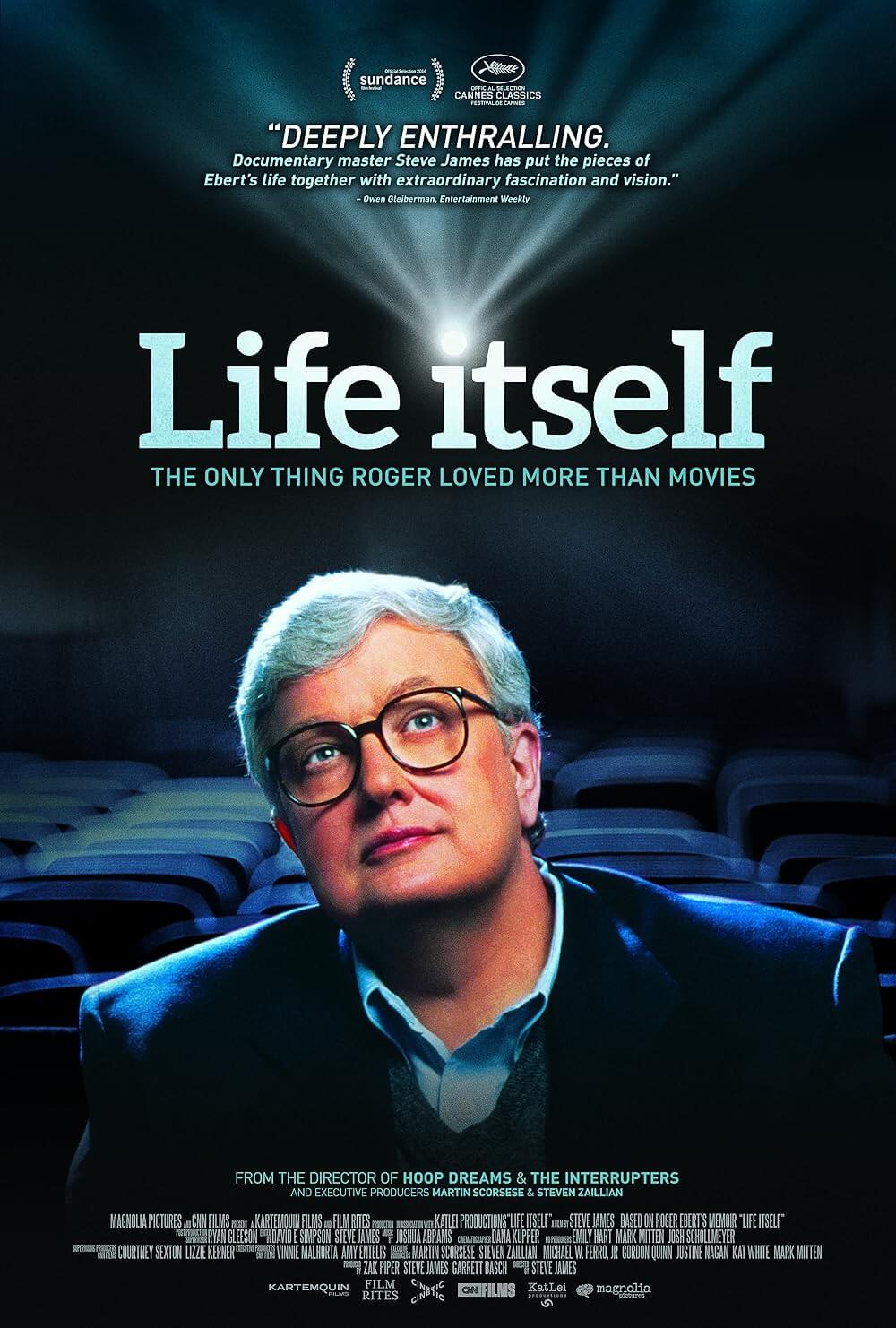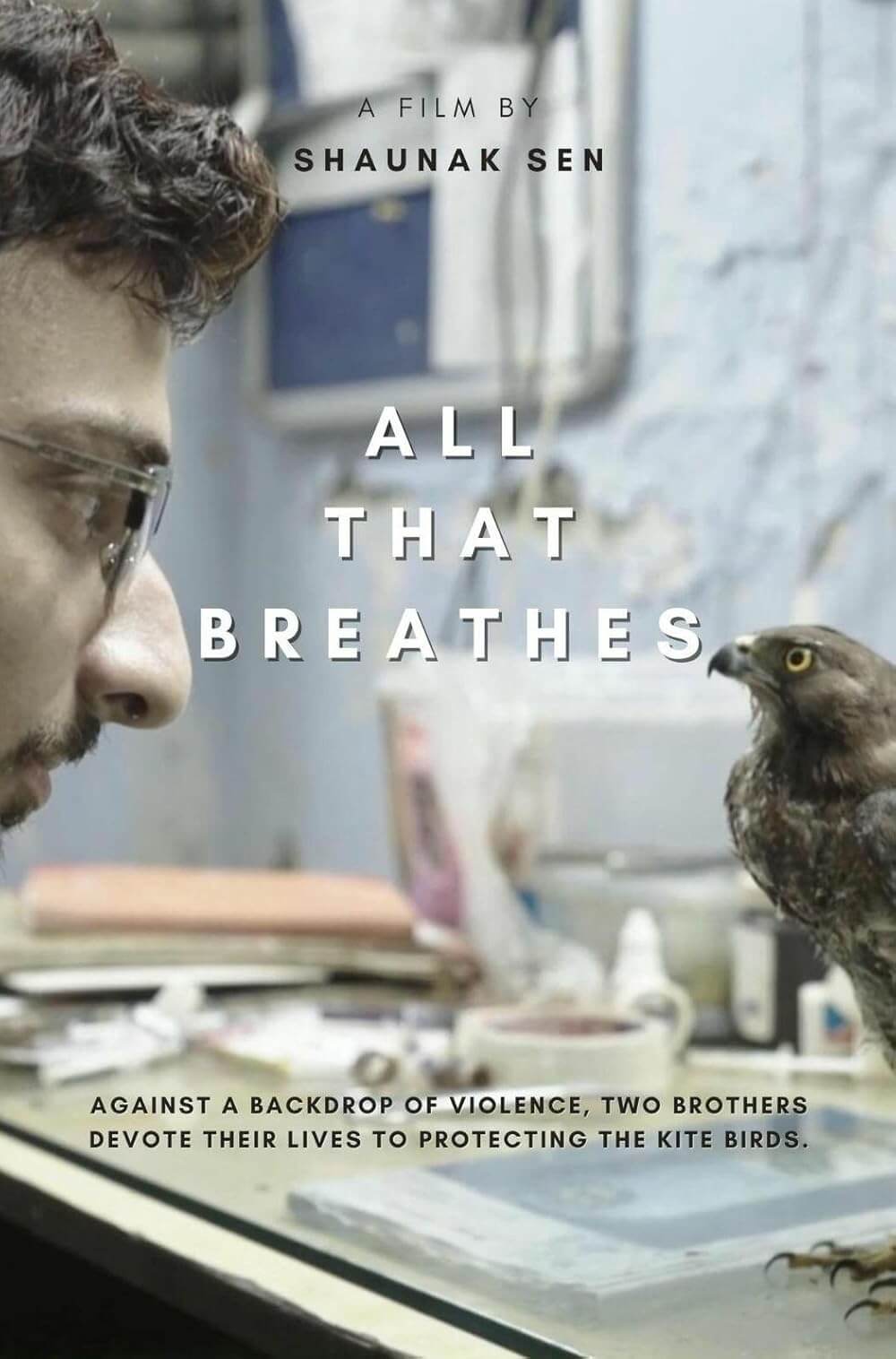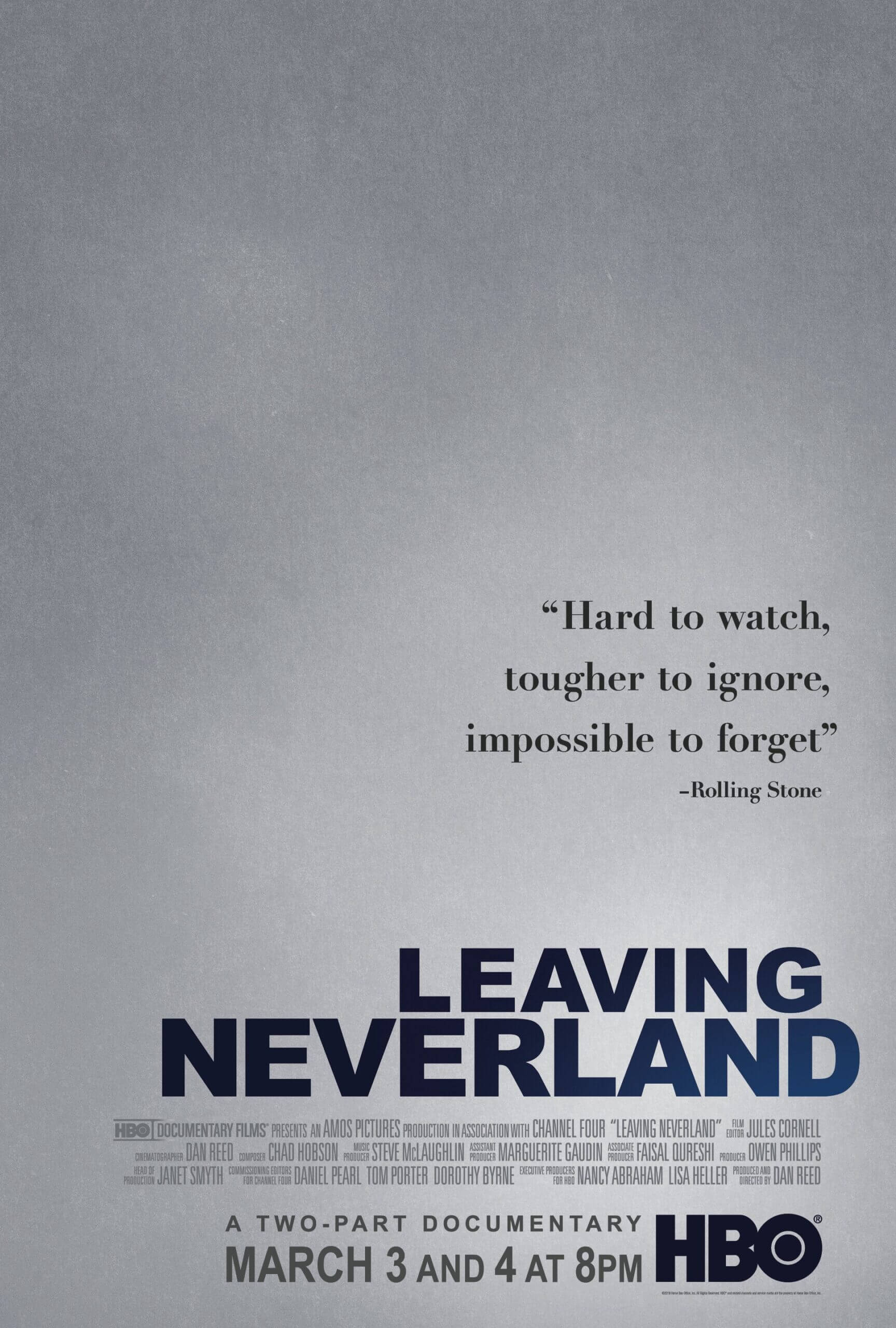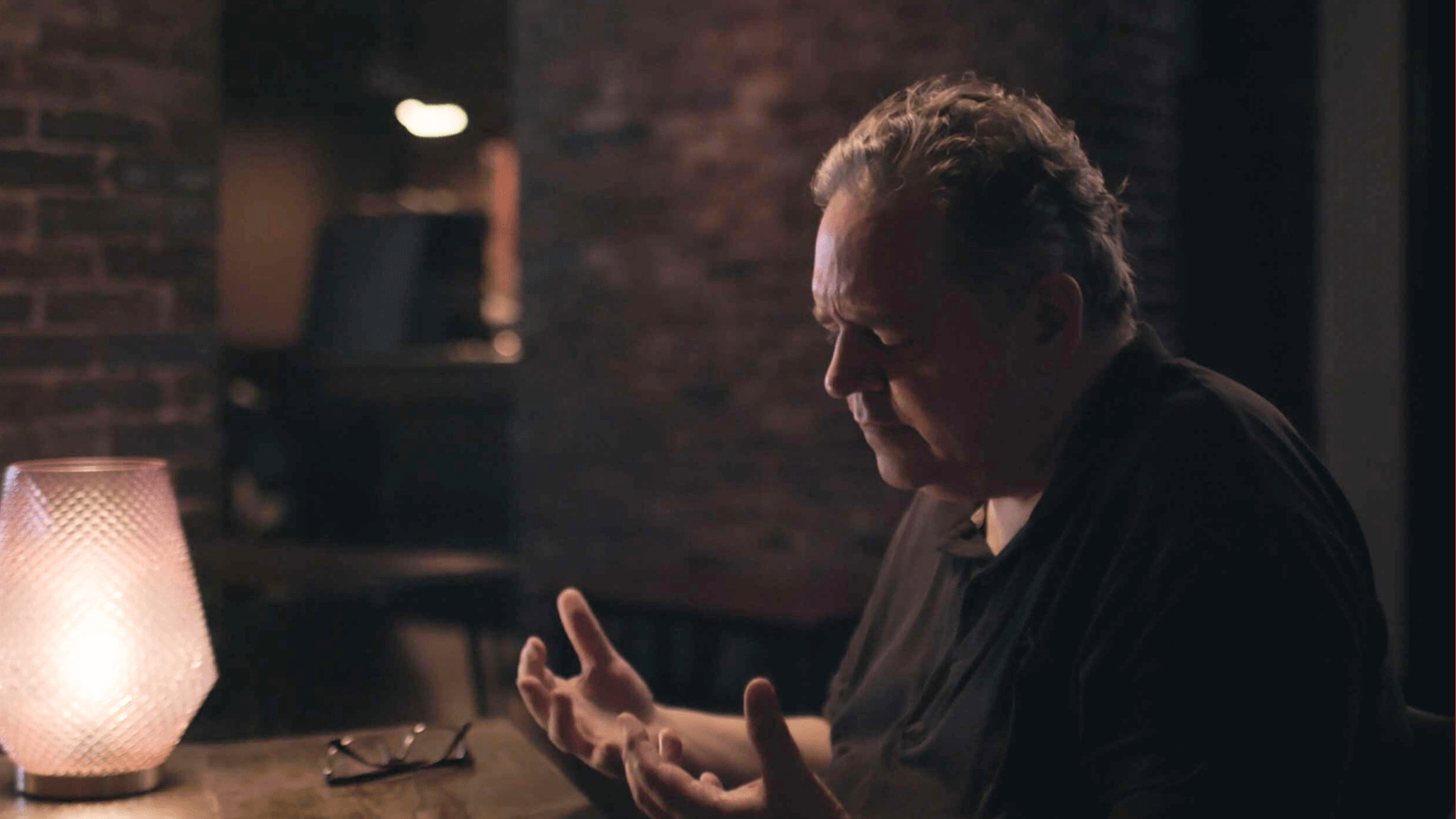
Look Into My Eyes
By Brian Eggert |
In director Lana Wilson’s fascinating and frustrating documentary Look Into My Eyes, the camera looks over New York City and finds a small, nondescript window that belongs to an average building. Inside, a doctor meets with a psychic. The doctor details an account of a young girl who died from a gunshot wound decades earlier. It was the first gruesome situation she experienced with a patient, and though she has doubtlessly been faced with other similar situations since, the trauma of the incident, vividly described, remains with her. She poses a simple question: “How is she?” Although that question isn’t answered until the film’s final moments, the doctor’s case remains among the more affecting ones included by Wilson, who’s a mostly peripheral, off-camera presence throughout. But her doc is less about investigating psychic phenomena than how broken people desperate for answers will search for them just about anywhere. That extends from those who visit psychics to the so-called clairvoyants themselves.
The degree to which Look Into My Eyes moves or even interests you may depend on your beliefs. Admittedly, I’m a skeptic, though not entirely closed to the idea of psychics, telepathy, and precognition. While I’ve never seen anything that would challenge my skepticism, I’m open to the possibility. Although I’m a devout atheist and generally a believer in science over the supernatural, the notion that some heightened form of sensory perception or unexplained ability in the brain is an intriguing possibility. But it’s more likely the result of humankind’s frantic need to find patterns, even where none exist, and our capacity to interpret personal significance out of vague declarations. Maybe I’ve seen too many illusionists and psychics debunked by the likes of James Randi and Carl Sagan to believe, or maybe I’ve read too much about the strategies of mentalism and heightened perception to be convinced that psychics are real. Fortunately, Wilson’s doc isn’t trying to convince anyone. She approaches her subject with a nonjudgmental desire to understand why people connect to these ideas.
Each person Wilson shows visiting a psychic has a specific question in mind. What will I regret on my deathbed? What will my future look like ten years from now? Most people want reassurance about something, such as whether their late loved ones approve of their lifestyle or have found happiness in the afterlife. One woman wants to know whether her dog likes her, given that she’s so combative while on a leash (Wouldn’t you be, too?). A young woman who was adopted from China by white parents wants to know what her birth parents were like. Her psychic, whose birth country was also China, wants to know if she still wants answers if they’re negative. The woman agrees. The psychic gives only vague information about the parents, but then he shares his beliefs and experiences regarding adoptees. It’s less a revelatory psychic reading than a form of amateur therapy, except without a requisite license or PhD. In case after case, Wilson shows each psychic’s capacity to read people and provide a session in service of two masters, the client and the psychic. For the psychics, they get to work through their own baggage.
Without coming out against psychics, Look Into My Eyes doesn’t offer a single moment that defies explanation; rather, it finds a curious pattern among its subjects. Most of her psychics seem to be frustrated creatives who have channeled their talents into a side hustle, drawing on their artist’s radar for emotional intuitiveness. Wilson’s observant camera also explores the psychics’ homes, showing their persistent work on plays and screenplays, their fascination with theater and performance, their notion of a reading as a one-person show, or their “intense” fascination with movies. Others admit to settling on psychic phenomena for myriad reasons: a reaction against their strict Christian upbringing, a traumatic childhood, an inability to make it as a performer, a bad breakup, a class offered by their college, or an interest in improv. “Even if this is fake, I like it,” says one. Another admits he never fully believes in the things he says—he just hopes he’s a psychic. I can’t help but wonder if he puts that on his business card or website.
I suspect that the performance aspects of the psychic work on display are somewhat more elaborate, given the presence of Wilson’s camera. One woman in particular snaps her fingers and dishes out vocalized bursts of emotion, but her words sound more like those of a snake oil salesperson or televangelist. The final scene finds one troubled psychic performing at an open mic night, pouring his heart out while looking directly into the camera. These details reinforce the notion that the psychics shown here use their practice as an outlet for their emotional and creative interests and needs. The similarities that Wilson finds are often fascinating, but the film feels repetitive and even tedious after watching one bogus reading after another. This is especially true after the film sets aside any hope of legitimacy to infer that psychics, like their patients, are just people searching for answers to unanswerable questions. However true, I didn’t enjoy spending time with these people. It felt like someone was dragging me to church and forcing me to engage, which, as suggested above, is anathema to me.
Watching the doc can be a little maddening and even funny, which made me wonder to what degree Wilson mocks her subjects, either intentionally or unintentionally. (Or am I just projecting, given my skepticism?) The director and her editor, Hannah Buck, do not choose flattering footage. Several scenes present the psychics as absurd charlatans, making it up as they go. I found the result akin to Errol Morris’ early work, such as Gates of Heaven (1978), about pet cemeteries, and his portraiture of the town in Vernon, Florida (1981). Wilson takes a look at humanity in its desperate attempts at self-therapy, whether that means yearning for personal resolutions with a self-proclaimed medium or starting a psychic practice as an outlet for individual expression. “If it resonates with the person that I’m talking to,” explains one psychic, “then it doesn’t fuckin’ matter.” I would argue that it does matter, in that I want my experiences to be authentic and genuine. Ultimately, Look Into My Eyes is a film about people who just want permission to feel what they feel, and do what they want to do—a deeply relatable notion.
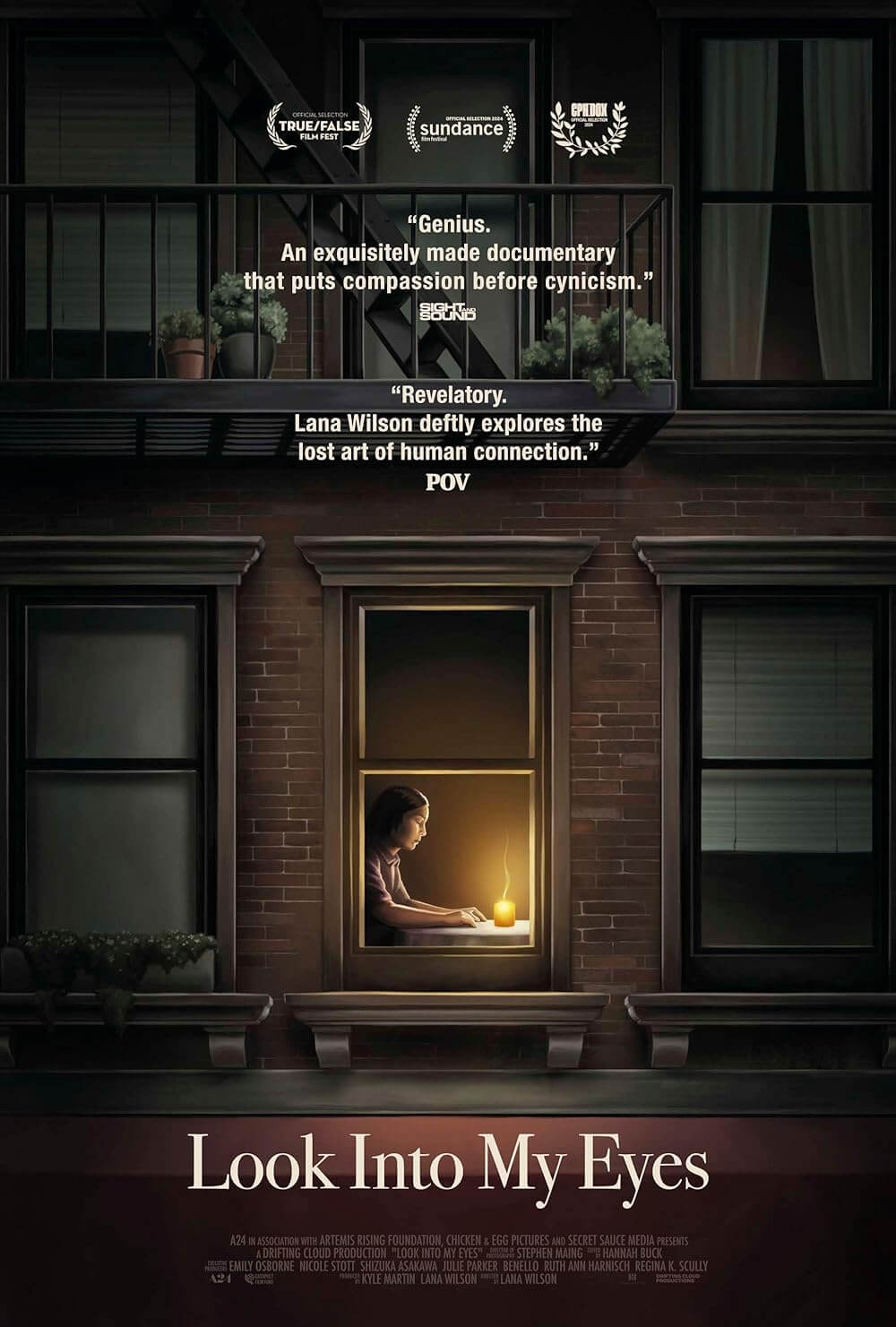
Unlock More from Deep Focus Review
To keep Deep Focus Review independent, I rely on the generous support of readers like you. By joining our Patreon community or making a one-time donation, you’ll help cover site maintenance and research materials so I can focus on creating more movie reviews and critical analysis. Patrons receive early access to reviews and essays, plus a closer connection to a community of fellow film lovers. If you value my work, please consider supporting DFR on Patreon or show your support in other ways.
Thank you for your readership!
Brian Eggert | Critic, Founder
Deep Focus Review


